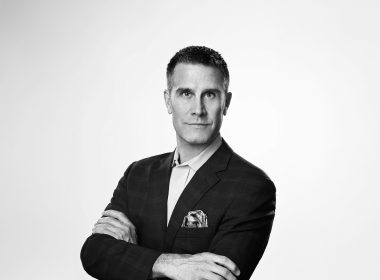Building successful tech teams across different continents isn’t just about having the right tools or processes. After 25 years in the trenches, Christophe Derdeyn learned this firsthand. His work helping companies optimize their IT operations through shared services and offshoring spans continents – from India to Malaysia to the Philippines. Through trial and error, successes and failures, he’s nailed down what really makes global teams tick. While most executives focus on metrics and deadlines, Christophe takes a different approach.
His three key principles for building high-performance teams have worked across different cultures and time zones:
1. Empowerment
The first lesson Christophe learned about building high-performance teams might surprise you: back off. “You need to empower your team,” he says. “You need to make sure that people know what you expect from them but don’t micromanage, don’t tell them what to do.”
His reasoning? Good people find their own paths. “There are many roads to Rome,” Christophe points out. While the destination matters, the journey looks different for everyone. “Give a broad direction, make sure that the objective is clear, but leave people to find their own way to reach the ultimate goal.” This freedom pays off in unexpected ways. “Empowered individuals are typically much more motivated,” he explains. Better yet, it spreads: “High performance is something that stimulates other people around them to also perform at a very high level.”
2. Open Communication
Running global teams brings unique challenges. Different cultures interpret the same words differently, leading to costly misunderstandings. Christophe’s solution? “Radical candor.”
“Open communication is making sure that your counterpart really understands what you’re trying to convey,” he explains. This means keeping things simple: “Use simple short sentences, simplified language.” It might feel basic, but it works. He recommends constant reality checks: “Paraphrase when someone says something to you, make sure that you understand what they really mean.” Why? Because “differences in cultural context may actually result in different interpretations for certain things.”
3. Diversity
Christophe’s third insight goes deeper than typical diversity talks. Sure, different backgrounds matter – but it’s about more than checking boxes. “Diversity is not just in terms of different types of people or people from different parts of the world,” he notes. Take gender balance in tech: “In some parts of the world you have more men in IT, and in some parts like in Asia you have more women.” Getting both perspectives matters. When you mix people from different cultures and backgrounds, something interesting happens.
“If you have that, you can actually use radical candor to come to a common language,” Christophe explains. “Everyone will basically elevate above their local cultural context and add their unique views.” The result? “You capture more small things that otherwise you might have missed. You get new ideas because you have different inputs of people.”
Knowing When to Say Goodbye
There’s one last piece of wisdom Christophe shares, and it’s perhaps the toughest. Know when to let people go. “If you look at anyone that doesn’t perform, don’t wait too long for saying goodbye to people.” This isn’t about being harsh – it’s about being honest. “If people don’t perform it’s not because they’re not necessarily good, but it may be that they don’t fit in your particular context, in your particular culture.” When that happens, dragging things out helps no one.
His approach? “Have open conversations around this, and when things work great you go forward, but when things don’t work don’t drag it on.” The key is to “say goodbye in a timely fashion in a fully respectful manner.”
To learn more about Christophe Derdeyn and his approach, check out his LinkedIn profile.











